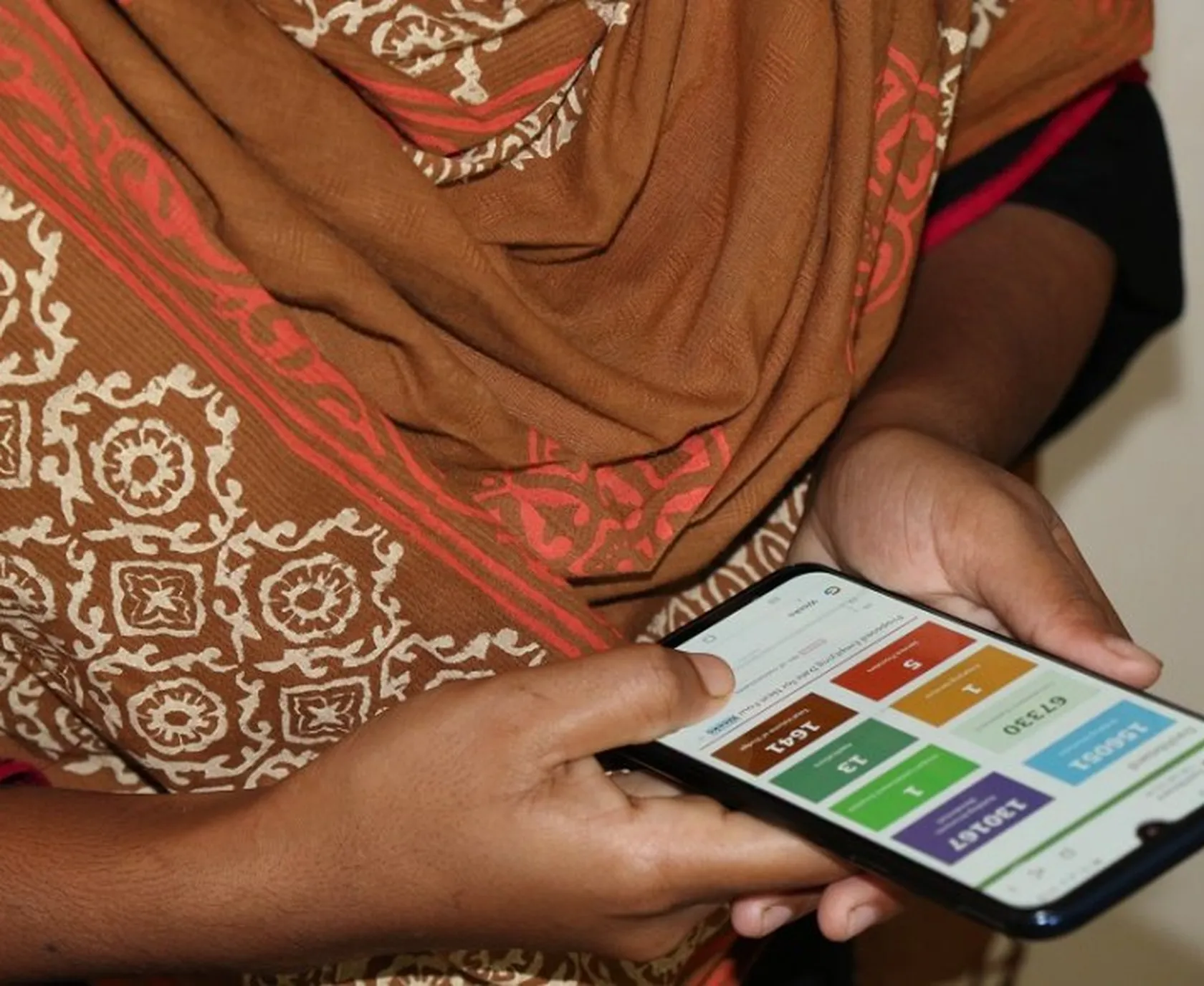
Digitalisation
Digitalisation presents opportunities and barriers alike. SNV works to bridge the digital divide and build an inclusive future for communities in low- and middle income countries (LMICs).
The spread and scaling-up of digital technologies generates huge potential for sustainable development, by transforming agri-food, energy, and water systems.
We apply digital solutions to work more effectively and efficiently and reach vulnerable communities with digital services tailored to their needs.
With digitalisation we can provide tailored information in a more timely manner through the use of digital tools, we can analyse data to optimise interventions, and ultimately scale our impact in a sustainable way.
Building an inclusive digital future
We support an inclusive digital transformation, but we know that the digital divide is real.
In many countries across the globe, vulnerable groups such as women, youth, and persons with disabilities cannot participate equitably in the digital economy due to limited access and a lack of digital skills.
SNV works to bridge the digital divide by leveraging digital innovation, empowering and equipping communities, and ultimately contributing to the UN Sustainable Development Goals.
Delivering digital impact
We bring together all relevant actors and work with various global and local technology partners to develop and apply digital solutions.
In agri-food, we support the development of an inclusive digital agriculture ecosystem. One example is the GARBAL service in the Sahel which aims to improve the resilience of climate-affected farmers and pastoralists via tailored advice based on satellite data. Of the more than 250,000 actionable calls received to date, 93% have made decisions based on the information received.
In energy, we’re increasing access to sustainable solutions for rural communities, applying digital tools to create affordable electricity and cooking solutions. The BRILHO programme aims to catalyse Mozambique’s off-grid energy market and increase energy access for 1.5 million people.
And in water, we use digital tools to promote equitable water resource management, improve urban and rural services, and mitigate water-related hazards. One example is a new digital tool that enables cities in Bangladesh to better manage urban sanitation services – ultimately supporting the government’s vision to create smart cities.
Our goal is to contribute to the creation of a digital society that is inclusive for all, one where we leave no one behind.


